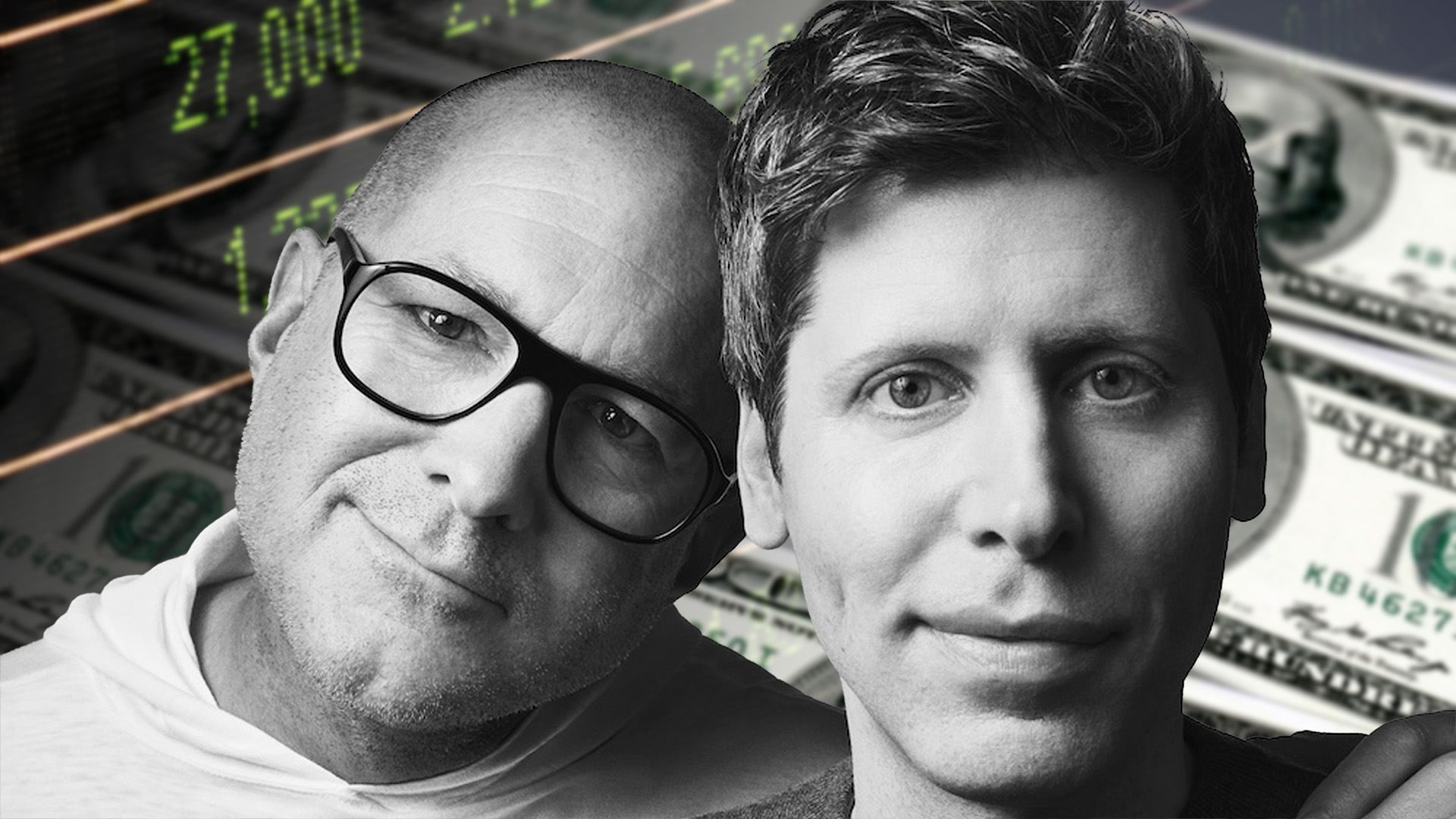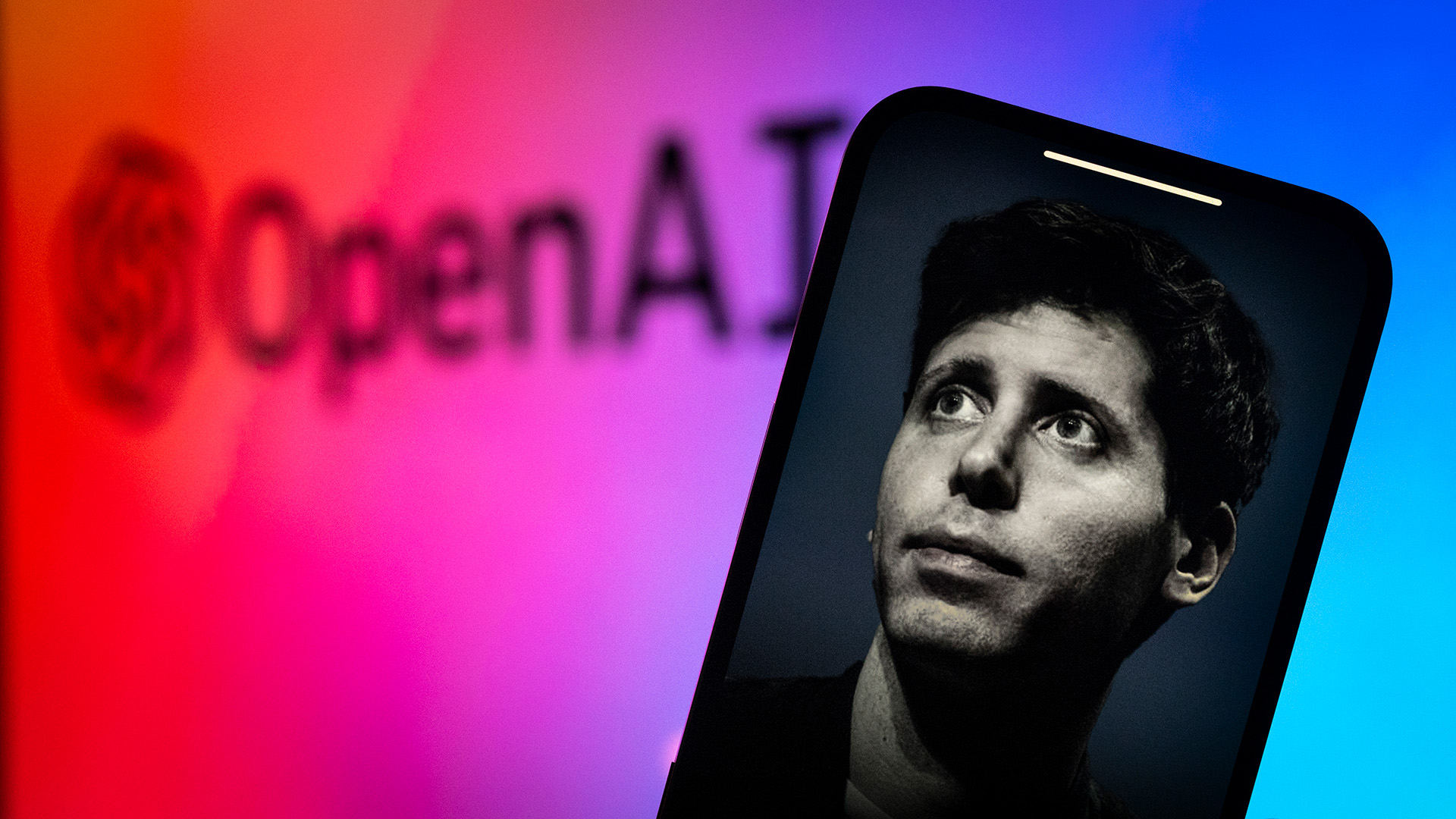OpenAI’s $6.5 billion purchase fuels Sam Altman’s quest to build next-gen computers for “transcendentally good” AI — The biggest tech disruption since the iPhone?
OpenAI announced that it recently closed a $6.5 billion deal to acquire former Apple designer Jony Ive's device startup.

All the latest news, reviews, and guides for Windows and Xbox diehards.
You are now subscribed
Your newsletter sign-up was successful
After a few months of negotiations, OpenAI has finally closed its $6.5 billion deal to acquire former Apple designer Jony Ive's AI device startup, io. This counts as OpenAI's largest acquisition so far, with the impending $3 billion Windsurf acquisition coming in at a distant second.
The ChatGPT maker updated its previous blog post announcing its plan to work closely with Jony Ive to develop AI hardware and buy his company with the following message:
"We’re thrilled to share that the io Products, Inc. team has officially merged with OpenAI. Jony Ive and LoveFrom remain independent and have assumed deep design and creative responsibilities across OpenAI."
The io Products, Inc. deal has officially closed and we’re thrilled to welcome the team to OpenAI.Jony Ive & LoveFrom remain independent. They’ll have deep design & creative responsibilities across OpenAI.https://t.co/mxZIdAyi5xJuly 9, 2025
Generally speaking, the acquisition places OpenAI in a unique position to compete with the likes of Microsoft, Google, Samsung, and even Apple in the hardware landscape. The AI firm has seemingly cemented its name in generative AI, with ChatGPT attracting broad adoption across the world as the go-to AI chatbot.
The acquisition will not only allow OpenAI to develop AI-powered devices, which could potentially lead to the biggest tech disruption since the iPhone launched in 2007, but also leverage Jony Ive's expertise alongside his team, which predominantly comprises former Apple designers.
According to OpenAI:
“The io team, focused on developing products that inspire, empower and enable, will now merge with OpenAI to work more intimately with the research, engineering and product teams in San Francisco.”
All the latest news, reviews, and guides for Windows and Xbox diehards.
Sam Altman can finally develop hardware designed to make AI "transcendentally good"
Last year, OpenAI CEO Sam Altman claimed that the AI revolution won't require new hardware, but if it does, "you'll be happy with a new device." However, he has seemingly shifted gears and now claims that current computers weren't designed for an AI-driven world:
"Computers, software, and hardware, just the way we think of current computers were designed for a world without AI. And now we're in like a different world, and what you want out of hardware and software is changing quite rapidly."
Google's CEO, Sundar Pichai, seemingly echoed similar sentiments, claiming that it's next to impossible to achieve coveted benchmarks like AGI (Artificial General Intelligence) with today's systems.
While details about the kind of hardware OpenAI plans to develop following the $6.5 billion acquisition of Jony Ive remain slim at best, Sam Altman has seemingly dropped subtle hints about what and how it could look, potentially making AI "transcendentally good."
The executive revealed in a previous interview that OpenAI is focused on delivering a new type of device that allows users to interact with software and hardware in a different way, other than the conventional typing and looking at a screen approach.
Altman claimed that the AI firm is actively exploring this avenue; however, he admitted that it may take a bit of time to deliver. He further revealed that the company has already come up with a couple of ideas that they are excited about exploring.
But perhaps more interestingly and a tad concerning, the executive indicated that the new type of devices will need some getting used to, including trusting the tech to understand all aspects and spheres of your life and having a high level of trust that it will make judgments with your best interest at heart.
A separate report by The Wall Street Journal claims that OpenAI and Jony Ive's LoveFrom have been working closely together, developing headphones and camera devices for the past two years. Interestingly, Jony Ive claims the first product they developed alongside OpenAI was well executed and captured their imaginations.
It will be interesting to see what kind of devices the collaboration develops and how OpenAI will manage to integrate its ChatGPT technology and models into the hardware.

Kevin Okemwa is a seasoned tech journalist based in Nairobi, Kenya with lots of experience covering the latest trends and developments in the industry at Windows Central. With a passion for innovation and a keen eye for detail, he has written for leading publications such as OnMSFT, MakeUseOf, and Windows Report, providing insightful analysis and breaking news on everything revolving around the Microsoft ecosystem. While AFK and not busy following the ever-emerging trends in tech, you can find him exploring the world or listening to music.
You must confirm your public display name before commenting
Please logout and then login again, you will then be prompted to enter your display name.

